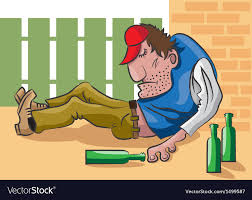By Akanimo Sampson
In tears, Lara* has recalled how her husband pulled out a real gun and pointed it at her when she tried to stop him from excessive drinking. He even lost control while she was holding their baby girl.
Tragically, her professional skills have not enabled her find a way out, even as she helps other women at the small community organisation where she works. “I can only share my story with a few colleagues, not with my mum, my brothers or the police,” Lara said, explaining that if she spoke out, her loved ones would blame her for disrupting the family harmony.
Lara spends her days providing support to survivors of violence and human trafficking in Vientiane, the capital of the Lao People’s Democratic Republic. Then at night, she goes home to an abusive husband.
She had known he was hot tempered when they married three years ago, but he didn’t start pushing and kicking her until after the wedding. The abuse quickly escalated, especially when he was drunk.
Thriving in shadows
As Lara knows all too well, she is not alone.
A national survey, supported by the government and United Nations, revealed that one in three women in a relationship had experienced physical, sexual or emotional violence at the hands of their partner – a rate that corresponds to global figures.
This violence thrives in the shadows.
More than 70 per cent of survivors never seek help from anyone, while 19 per cent sought help from a community leader, the survey showed. Only four per cent went to the police and only three per cent sought assistance from health services.
Gender discrimination and a high tolerance of violence are the reasons behind such low reporting rates. The survey showed that 58 per cent of women and 49 per cent of men believed violence could be justified if women did not follow traditional gender norms and roles.
Despite the pain in her personal life, Lara says she connects deeply with her clients, whom she supports with psychosocial services. She celebrates when they are able to leave their own struggles behind.
And she has seen recent progress in the legal attitude towards survivors. Since 2014, all forms of violence have been prohibited by the law on Combating and Preventing Violence Against Women and Children.
But there are significant gaps in implementing this law and others, and in helping survivors receive support.
Today, the United Nations Population Fund (UNFPA) is supporting the Lao Women’s Union and other partners to address these gaps. They are working on a local version of the Essential Services Package for Women and Girls Subject to Violence, a set of tools and guidelines to prevent and respond to gender-based violence.
Jointly developed by UNFPA and other UN agencies in 2015, the Essential Services Package clarifies the needs and rights of all survivors, and helps governments and organizations respond to those needs in an effective, sensitive and coordinated way.
For example, when a victim of violence arrives at a hospital, they should receive comprehensive, confidential care as well as referrals to protection, legal assistance, psychosocial support and other services.
As part of these holistic efforts, UNFPA is working with the Government to strengthen referral systems and improve the responses of the health and justice systems. UNFPA will also support advocacy campaigns to promote the rights and equality of women, and will provide trainings to judges, police and other officials. Current UNFPA efforts to train health staff and provide psychosocial support will continue.
Breaking the cycle of violence
“The implementation of the Essential Services Package will improve the quality of preventive and treatment services available to women and girls in Lao People’s Democratic Republic,” said Mariam Khan, UNFPA’s representative in the country.
At the recent Nairobi Summit on ICPD25, the government committed to a range of actions to uphold the rights and welfare of women and youth. These included ending gender-based violence through the National Action Plan for the Prevention and Elimination of Violence Against Women 2021-20205, as well as providing age-appropriate comprehensive sexuality education, which addresses the importance of healthy and respectful relationships.
The Essential Services Package was also recognized as a critical step towards ending violence against women and girls. “This work is putting into practice the national commitment on ICPD25,” Ms. Khan said.
*Name changed for protection and privacy.

